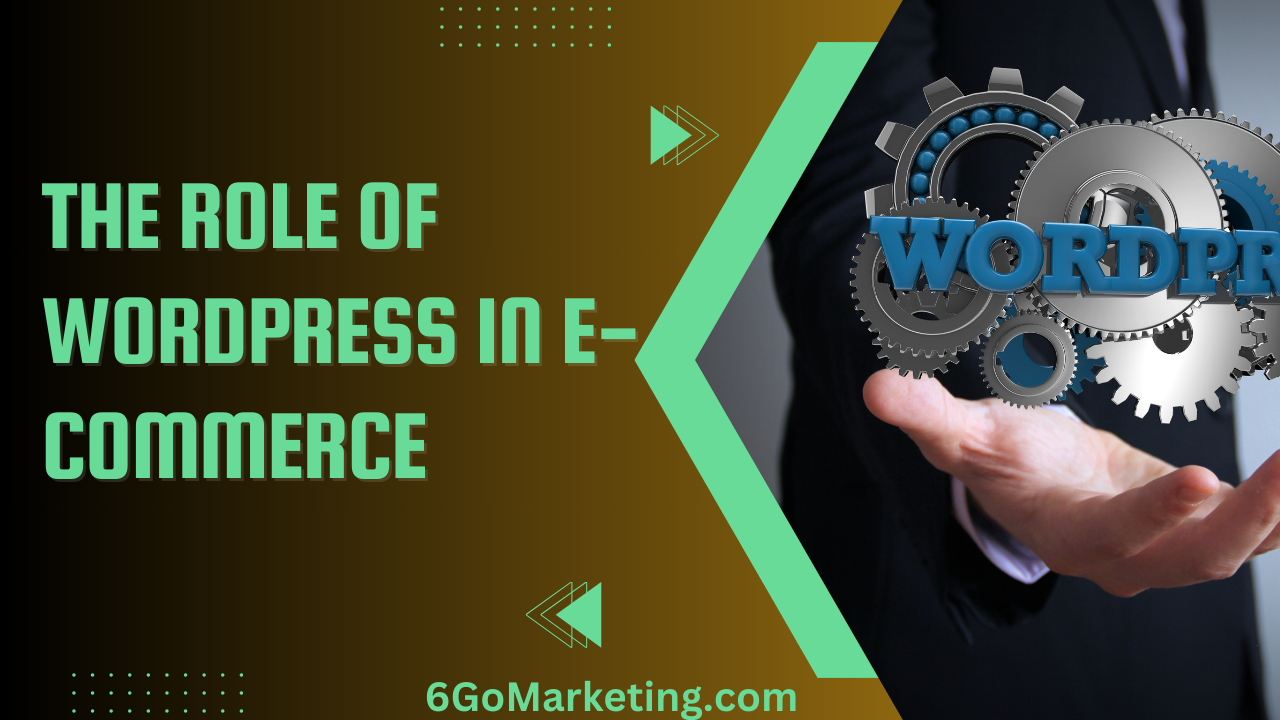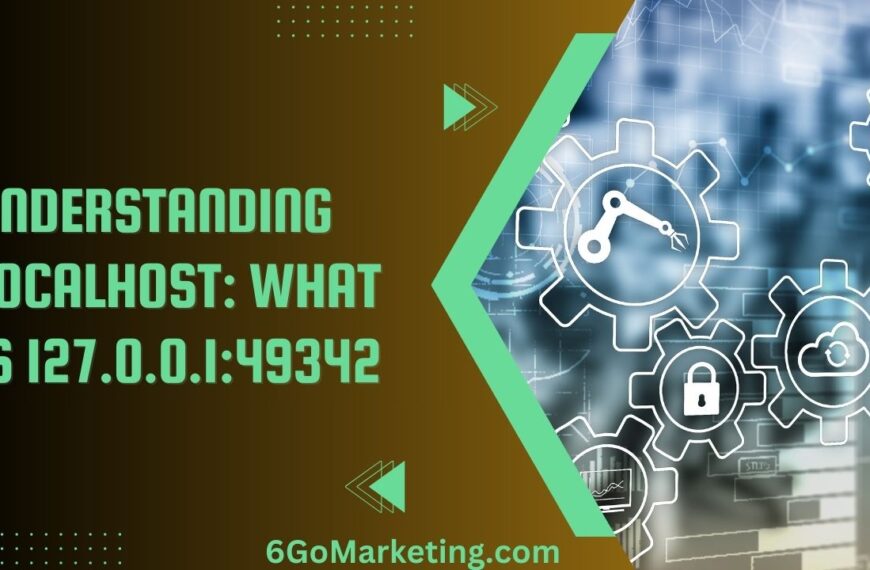E-commerce has become an integral part of the modern business landscape, allowing companies to reach global audiences and operate around the clock. In this rapidly growing digital marketplace, choosing the right platform to build and manage an online store is critical. WordPress, originally known as a blogging platform, has evolved into a powerful content management system (CMS) that powers over 40% of websites globally, including many e-commerce stores.
This blog post explores the role of WordPress in e-commerce, detailing its benefits, key features, and tools that make it an ideal platform for online businesses. We will also provide real-world examples, practical tips, and include several tables to help you understand how WordPress can be leveraged to build a successful e-commerce site.
Why WordPress for E-commerce?
WordPress is a popular choice for e-commerce due to its flexibility, scalability, and user-friendly interface. Here are some reasons why WordPress is an excellent platform for e-commerce:
- Flexibility and Customization:
- WordPress offers unparalleled flexibility, enabling you to create a unique and fully customized online store that aligns with your business needs. With thousands of themes and plugins available, including those that support 3D e-commerce, you can tailor your site to reflect your brand identity and functionality requirements. Moreover, it’s an effective solution for ecommerce for manufacturers, as it can handle specific product categories efficiently. With thousands of themes and plugins available, you can tailor your site to reflect your brand identity and functionality requirements, whether you’re selling luxury products like diamond rings, or wedding rings.
- Cost-Effective Solution:
- WordPress is a cost-effective platform, especially for small businesses. The core software is free, and many plugins and themes are available at low or no cost. This allows you to build a professional online store without significant upfront investment.
- SEO-Friendly:
- WordPress is designed with SEO in mind. By utilizing plugins like Yoast SEO, you can optimize your website for search engines, improve rankings, and drive more organic traffic—essential for increasing sales and growing your online presence.
- Scalability:
- WordPress can scale with your business, whether you start with a small product range or expand to a large inventory. It can handle everything from a few products to thousands, making it suitable for businesses of all sizes.
- Community Support:
- WordPress has a large and active community of developers, designers, and users who contribute to its development, making it an excellent choice for businesses seeking integration with services from a ReactJS development company. This provides a wealth of resources, tutorials, and support to help you succeed.
Key Features of WordPress for E-commerce
WordPress offers a wide range of features that make it an ideal platform for e-commerce. Below are some of the key features that contribute to its success as an e-commerce platform.
WooCommerce Integration
WooCommerce is the most popular e-commerce plugin for WordPress, powering over 28% of all online stores. It offers a comprehensive suite of features for managing products, payments, shipping, and more. With WooCommerce, businesses can easily set up and customize their online store, add products, and manage orders.
| WooCommerce Key Features | Description |
|---|---|
| Product Management | Add, edit, and categorize products with ease |
| Payment Gateways | Supports multiple payment methods, including PayPal and Stripe |
| Shipping Options | Configure shipping zones, rates, and methods |
| Analytics and Reporting | Track sales, orders, and customer data |
| Extensions and Plugins | Enhance functionality with add-ons for marketing, SEO, and more |
Customizable Themes
WordPress offers a vast library of themes designed specifically for e-commerce. These themes are fully customizable, allowing businesses to create a professional-looking store that reflects their brand. Popular e-commerce themes include Astra, Divi, and Flatsome, each offering responsive design, drag-and-drop builders, and built-in SEO features.
| Popular E-commerce Themes | Key Features |
|---|---|
| Astra | Lightweight, customizable, optimized for speed |
| Divi | Drag-and-drop builder, visual editor, flexible layouts |
| Flatsome | Responsive design, built-in sliders, WooCommerce ready |
SEO Capabilities
SEO is critical for driving organic traffic to your e-commerce site. WordPress, combined with plugins like Yoast SEO or All in One SEO, provides robust tools for optimizing your site’s content, meta tags, URLs, and more. These plugins offer features like XML sitemaps, breadcrumbs, and schema markup, all of which improve your site’s visibility in search engines.
| Key SEO Features | Description |
|---|---|
| XML Sitemaps | Automatically generated sitemaps for search engines |
| Meta Tags Management | Customize title tags, meta descriptions, and keywords |
| Schema Markup | Structured data for enhanced search results |
| Breadcrumbs | Improves site navigation and user experience |
| Content Analysis | Provides SEO recommendations for on-page content |
Security
Security is a top priority for any e-commerce site. WordPress offers a range of security plugins, such as Wordfence and Sucuri, that protect your site from threats like malware, hacking, and data breaches. Regular updates to WordPress, along with SSL certificates and secure payment gateways, ensure that your store remains secure and trustworthy.
| Security Plugins for WordPress | Key Features |
|---|---|
| Wordfence | Firewall, malware scanning, login security |
| Sucuri | Website firewall, DDoS protection, security monitoring |
| iThemes Security | Two-factor authentication, brute force protection |
Multilingual and Multi-currency Support
For businesses looking to reach a global audience, WordPress offers multilingual and multi-currency capabilities through plugins like WPML (WordPress Multilingual Plugin) and WooCommerce Multilingual. These tools allow you to translate your site into multiple languages, display prices in different currencies, and manage international sales.
| Multilingual and Multi-currency Plugins | Key Features |
|---|---|
| WPML | Translate posts, pages, and products |
| Polylang | Multilingual support with language switcher |
| Weglot | Automatic translation, supports 100+ languages |
| WooCommerce Multilingual | Sync products, categories, and attributes across languages |
Real-World Examples of WordPress E-commerce Success
Many successful online businesses have chosen WordPress as their e-commerce platform due to its flexibility and scalability. Here are a few real-world examples:
Blue Star Coffee Roasters
- Blue Star Coffee Roasters is a specialty coffee company that uses WordPress and WooCommerce to power its online store. The site features a clean, user-friendly design with easy navigation, secure payment options, and a subscription service for regular coffee deliveries. By leveraging WordPress’s SEO capabilities, Blue Star Coffee Roasters has been able to reach new customers and grow its online sales.
Airstream Supply Company
- Airstream Supply Company, a subsidiary of the iconic Airstream brand, uses WordPress and WooCommerce to sell curated outdoor gear and accessories. The site showcases high-quality product images, customer reviews, and detailed product descriptions, all optimized for SEO. The site’s mobile-responsive design ensures a seamless shopping experience across devices.
All Blacks Shop
- The All Blacks Shop, the official online store of New Zealand’s national rugby team, is powered by WordPress and WooCommerce. The site offers a wide range of merchandise, including jerseys, apparel, and accessories. With a focus on user experience, the All Blacks Shop features advanced search functionality, product filtering, and secure checkout processes.
Practical Tips for Building a WordPress E-commerce Site
If you’re considering using WordPress to build your e-commerce site, here are some practical tips to help you get started:
Choose the Right Hosting Provider
- Your hosting provider plays a crucial role in the performance and security of your e-commerce site. Look for a provider that offers optimized hosting for WordPress, such as Bluehost, SiteGround, or WP Engine. These providers offer features like one-click WordPress installation, automatic updates, and 24/7 support.
Select a Responsive Theme
- A responsive theme ensures that your site looks great on all devices, including smartphones and tablets. Choose a theme that is optimized for speed and SEO, and that offers customization options to match your brand’s identity.
Optimize for Speed
- Page load speed is critical for both user experience and SEO. Use caching plugins like W3 Total Cache or WP Rocket to reduce load times. Compress images, minimize CSS and JavaScript files, and consider using a content delivery network (CDN) to improve site performance.
Implement Strong Security Measures
- Protect your e-commerce site with security plugins, SSL certificates, and regular backups. Use two-factor authentication for admin accounts, and keep your WordPress core, themes, and plugins updated to the latest versions.
Focus on User Experience
- Ensure that your site is easy to navigate, with clear product categories, search functionality, and filters. Use high-quality product images, detailed descriptions, and customer reviews to build trust and drive conversions.
Leverage SEO Plugins
- Install an SEO plugin like Yoast SEO to optimize your site’s content, meta tags, and URLs. Use keyword research tools to identify high-value keywords, and create high-quality content that attracts organic traffic.
Integrate Analytics
- Track your site’s performance with Google Analytics and other e-commerce analytics tools. Monitor key metrics such as traffic, bounce rates, conversion rates, and average order value. Understanding these metrics will help you make data-driven decisions to optimize your site and increase sales.
Streamline the Checkout Process
- A smooth and straightforward checkout process is essential for reducing cart abandonment rates. Ensure that your checkout page is user-friendly, offers multiple payment options, and minimizes the number of steps required to complete a purchase. Consider using WooCommerce extensions like WooCommerce One Page Checkout or WooCommerce Payments to enhance the checkout experience and simplify the process for your customers.
Leverage Email Marketing
- Integrate your WordPress site with email outreach tools like Mailchimp or Sendinblue to capture leads and nurture customer relationships. Use automated email campaigns to follow up on abandoned carts, send order confirmations, and encourage repeat purchases with personalized offers and discounts.
Optimize for Mobile
- With an increasing number of consumers shopping on mobile devices, it’s crucial to ensure that your e-commerce site is fully optimized for mobile. Choose a responsive theme, prioritize fast loading times, and make sure that navigation, buttons, and forms are easy to use on smaller screens.
Utilize Social Proof
- Social proof, such as customer reviews, testimonials, and user-generated content, can significantly influence purchasing decisions. Encourage your customers to leave reviews and share their experiences on social media. Display these reviews prominently on your product pages to build trust and credibility.
Regularly Update Content
- Keep your e-commerce site fresh and engaging by regularly updating your content. This could include adding new products, refreshing product descriptions, or writing blog posts related to your industry. Consistently updating your site not only provides value to your customers but also helps with SEO by signaling to search engines that your site is active and relevant.
The Future of WordPress in E-commerce
As e-commerce continues to evolve, WordPress remains at the forefront, providing businesses with the tools and flexibility they need to succeed. The following trends highlight the future direction of WordPress in the e-commerce space:
- AI and Machine Learning Integration
- AI and machine learning technologies are becoming increasingly integrated into e-commerce platforms. For WordPress, this means more advanced product recommendations, personalized shopping experiences, and automated customer support using AI-driven chatbots.
- Growth in Mobile Commerce (M-commerce)
- As mobile commerce continues to rise, Expert WordPress developers are placing greater emphasis on mobile-first designs and features. Expect to see improvements in mobile checkout processes, mobile payment options, and mobile-specific plugins that enhance the shopping experience on smartphones and tablets.
- Headless Commerce
- Headless commerce is a growing trend where the front-end and back-end of an e-commerce site are decoupled. This approach allows for greater flexibility and faster performance. WordPress can serve as the content management system (CMS) while integrating with various front-end frameworks to deliver a seamless shopping experience.
- Sustainability and Ethical E-commerce
- As consumers become more conscious of sustainability and ethical practices, e-commerce businesses are increasingly focusing on transparency, eco-friendly products, and ethical sourcing. WordPress can support these initiatives through customizable themes and plugins that highlight a brand’s commitment to sustainability and ethical practices.
- Enhanced Security and Privacy Features
- With growing concerns about data privacy and cybersecurity, WordPress will continue to enhance its security features. Future developments may include more robust encryption, compliance with global data protection regulations, and built-in tools for managing customer data securely.
Conclusion
WordPress has solidified its role as a leading platform for e-commerce, offering a flexible, scalable, and cost-effective solution for businesses of all sizes. Whether you’re launching a small boutique or managing a large online store, WordPress provides the tools and features necessary to create a successful e-commerce website.
From its seamless integration with WooCommerce to its extensive library of themes and plugins, WordPress enables businesses to build a unique and customized shopping experience that drives sales and enhances customer satisfaction. By focusing on key aspects such as SEO, security, and user experience, businesses can leverage the full potential of WordPress to achieve their e-commerce goals.
As e-commerce trends continue to evolve, WordPress will remain a powerful and adaptable platform, equipped to meet the changing needs of businesses and consumers alike. With the right strategy, tools, and approach, WordPress can be the key to unlocking your e-commerce success and driving long-term growth.








